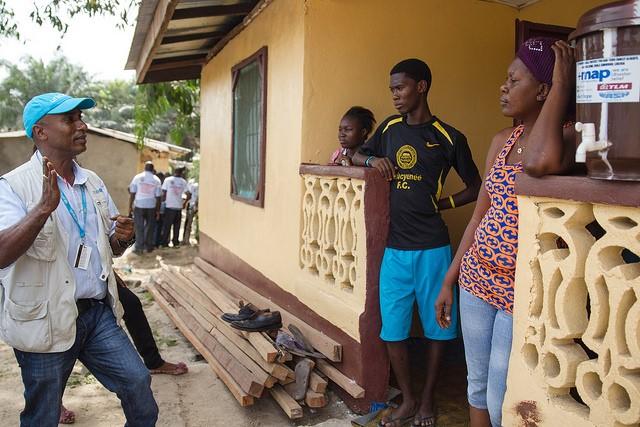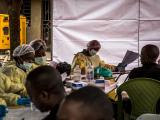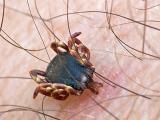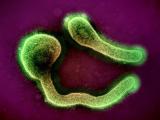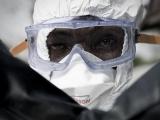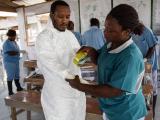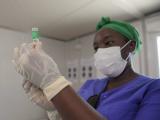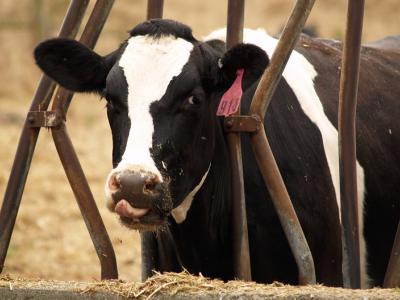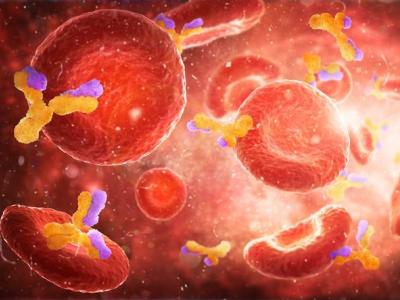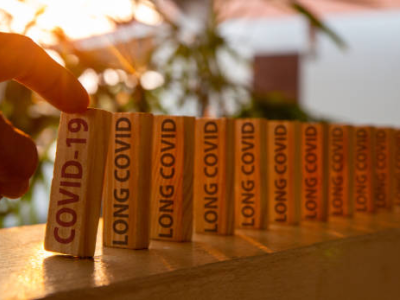Ebola responders in the Democratic Republic of Congo (DRC) are revealing more about local practices and community mistrust, which in some instances are hampering the actions needed to curb the spread of the disease in the country's outbreak hot spots.
In another development, Kaiser Family Foundation (KFF) today said the United States is playing a less prominent role in the response, a sign that suggests the international response is more prepared to tackle such outbreaks but also raises questions about the nation's mixed signals regarding global health security.
Responders face familiar foe in community mistrust
A representative from Doctors Without Borders (MSF) said at a news conference in Geneva that a doctor and nurse were threatened by local people who accused the health workers of bringing the disease into the communities, while residents of another town blocked medics from testing the body of a person who died from suspected Ebola, Reuters reported today.
Jean-Clement Cabrol, MSF's emergency medical coordinator, said the information campaign is under way, but it's still insufficient, and religious and traditional leaders need to be tapped more to help with the messaging.
During West Africa's outbreak, responders faced similar challenges, sometimes even marked by violence. And the WHO and its partners deployed anthropologists and community messaging in the current outbreak's early days.
The Reuters report also had more details about the two patients who left an Ebola isolation unit in Mbandaka, the heavily populated Equateur province capital. One was a woman who was taken to an evangelical church where she prayed with 19 other people before returning to the hospital where she died the next night.
Health officials went to the church to vaccinate several people, according to the report.
In other developments, a Catholic priest has been isolated in Mbandaka with a suspected Ebola infection, Agence-France Presse (AFP) reported today, citing an anonymous source.
So far today, health officials haven't announced any new outbreak totals. Yesterday the DRC health ministry said there are 52 cases, 31 confirmed, 13 probable, and 8 suspected.
The DRC's health minister Oly Ilunga Kalenga, MD, PhD, today tweeted pictures of himself receiving the experimental Ebola vaccine, given that he's a frontline health worker. "However, the most effective measures remain the respect of hygiene measures, the rapid management of cases, and the follow-up of contacts," he added.
KFF: Funds help fill gap, but policies send mixed signals
The United States has played much less prominent role in the latest Ebola outbreak, raising some questions about the nation's commitment to global health security but also reflecting that the global capacity to respond to such an outbreak has become much more robust following West Africa's massive outbreak, the Kaiser Family Foundation (KFF) said today in a policy brief.
The authors of the report spelled out key changes since West Africa's outbreak, including World Health Organization (WHO) reorganization, new leadership engaged in the response, and the group's creation of an emergency contingency fund. Also, the international community and global health groups have stepped forward with $59.6 million in support for the DRC's outbreak, far exceeding the WHO's May 18 request of $26 million to support its activities.
Other differences in the current outbreak—the largest involving Ebola since West Africa's epidemic—include the DRC's past experience managing Ebola outbreaks and the availability of an experimental vaccine to help battle the disease.
The United States engaged early in the response, especially the Centers for Disease Control and Prevention (CDC) with epidemiological and other support and USAID with technical assistance and support totaling $8 million, an amount KFF said essentially filled the gap in the WHO's donor request.
Though the United States is not leading the response on the ground, it is providing valuable assistance at a time when cases have risen past 50, KFF said. "Today, the increased capacity of WHO to address Ebola outbreaks and its quick response in partnership with DRC mean that the current landscape, as well as the potential role for the U.S., may be quite different from four years ago."
However, recent US policy has sent mixed signals about support for global health security, the authors note. Most of the emergency appropriation that Congress approved for West Africa's outbreak, with a chunk of funds earmarked for to help countries improve their capacity to respond to similar outbreaks, is set to expire at the end of the 2019 fiscal year, and the White House has submitted a proposal to cut remaining USAID funds by $252 million, though Congress hasn't acted on it.
But the group noted that the White House did request an increase for global health security programs at the CDC for the 2019 fiscal year. "Taken together, these recent funding moves have created an air of uncertainty about the U.S. commitment to global health security more broadly, brought into stark relief in the midst of a new Ebola outbreak," KFF wrote.
Uncertainty over lack of US point person
The report also pointed out that though the DRC situation isn't as dire as West Africa in 2014, the US government hasn't designated a leader for its international outbreak response activities. The authors noted that the Trump Administration had appointed Tim Ziemer to lead biosecurity and global health efforts, but his position was recently eliminated in reshuffling within the National Security Council (NSC).
So far, no other NSC staff or the CDC director have made public statements, the report said, noting that in comparison, senior Obama administration officials had highly visible roles. "Whether and how to designate a point person on outbreaks is a debate that predates the DRC Ebola outbreak, but the ongoing outbreak has added some urgency to this discussion," they wrote.
Though the outbreak in the DRC is unpredictable, if it expands and crosses borders, responders will probably need more international assistance, which might come with a request for the United States to ramp up its engagement, the report concluded.
See also:
May 25 Reuters story
May 25 AFP story
DRC health minister Twitter feed
May 25 KFF brief
